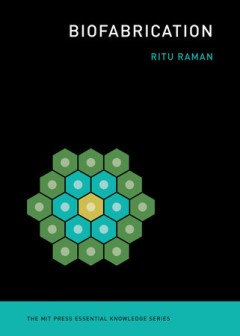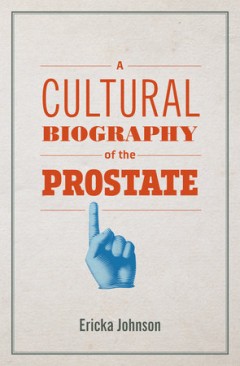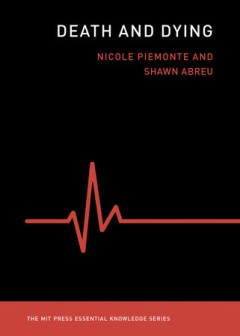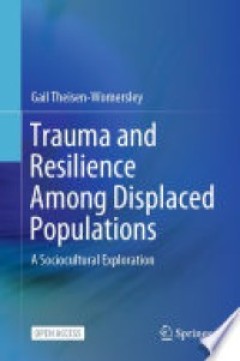Filter by

Biofabrication
How engineered materials and machines powered by living biological cells can tackle technological challenges in medicine, agriculture, and global security. You are a biological machine whose movement is powered by skeletal muscle, just as a car is a machine whose movement is powered by an engine. If you can be built from the bottom up with biological materials, other machines can be as well.…
- Edition
- -
- ISBN/ISSN
- 9780262366762
- Collation
- -
- Series Title
- -
- Call Number
- -

Running Smart: How Science Can Improve Your Endurance and Performance
A science writer and recreational runner explores the science behind popularly held beliefs about shoes, injuries, nutrition, “runner's high,” and more. Conventional wisdom about running is passed down like folklore (and sometimes contradicts itself): the right kind of shoe prevents injury—or running barefoot, like our prehistoric ancestors, is best; eat a high-fat diet—and also carb…
- Edition
- -
- ISBN/ISSN
- 9780262365192
- Collation
- -
- Series Title
- -
- Call Number
- -

A Cultural Biography of the Prostate
What contemporary prostate angst tells us about how we understand masculinity, aging, and sexuality. We are all suffering an acute case of prostate angst. Men worry about their own prostates and those of others close to them; women worry about the prostates of the men they love. The prostate—a gland located directly under the bladder—lurks on the periphery of many men's health issues, bu…
- Edition
- -
- ISBN/ISSN
- 9780262366984
- Collation
- -
- Series Title
- -
- Call Number
- -

Death and Dying
An examination of the contemporary medicalization of death and dying that calls us to acknowledge death's existential and emotional realities. Death is a natural, inevitable, and deeply human process, and yet Western medicine tends to view it as a medical failure. In their zeal to prevent death, physicians and hospitals often set patients and their families on a seemingly unstoppable traject…
- Edition
- -
- ISBN/ISSN
- 9780262363860
- Collation
- -
- Series Title
- -
- Call Number
- -

Trauma and Resilience Among Displaced Populations : A Sociocultural Exploration
This open access book provides an enriched understanding of historical, collective, cultural, and identity-related trauma, emphasising the social and political location of human subjects. It therefore presents a socio-ecological perspective on trauma, rather than viewing displaced individuals as traumatised “passive victims”. The vastness of the phenomenon of trauma among displaced populati…
- Edition
- 1
- ISBN/ISSN
- 9783030677121
- Collation
- XII, 305
- Series Title
- -
- Call Number
- 300

The Human Disease: How We Create Pandemics, from Our Bodies to Our Beliefs
How the very fact of being human makes us vulnerable to pandemics—and gives us the power to save ourselves. The COVID-19 pandemic won't be our last—because what makes us vulnerable to pandemics also makes us human. That is the uncomfortable but all-too-timely message of The Human Disease, which travels through history and around the globe to examine how and why pandemics are an inescapab…
- Edition
- -
- ISBN/ISSN
- 9780262377928
- Collation
- -
- Series Title
- -
- Call Number
- -

Basic Bioethics: Inducing Immunity?: Justifying Immunization Policies in Time…
Why immunization must be made mandatory in times of vaccine hesitancy, and how we can design and implement immunization policies in a practical, trustworthy, and democratic way. We live in perilous times when a significant number of citizens are either defiantly antivaccination or hesitant to accept vaccinations for themselves or for their children. In Inducing Immunity?, legal philosopher Rol…
- Edition
- -
- ISBN/ISSN
- 9780262378376
- Collation
- -
- Series Title
- -
- Call Number
- -

The Biology of Kindness: Six Daily Choices for Health, Well-Being, and Longevity
How kindness—and other prosocial behaviors toward others—can help us live longer and healthier lives. The science is in: being good is actually good for you. In this bracingly original book, The Biology of Kindness—the first in a trilogy on the topic of daily wellness—the science of mindfulness and the findings of biology come together to show how kindness and optimism improve overal…
- Edition
- -
- ISBN/ISSN
- 9780262378192
- Collation
- -
- Series Title
- -
- Call Number
- -

Vienna Series In Theoretical Biology: The Evolution of Techniques: Rigidity a…
A novel, interdisciplinary exploration of the relative contributions of rigidity and flexibility in the adoption, maintenance, and evolution of technical traditions. Techniques can either be used in rigid, stereotypical ways or in flexibly adaptive ways, or in some combination of the two. The Evolution of Techniques, edited by Mathieu Charbonneau, addresses the impacts of both flexibility an…
- Edition
- -
- ISBN/ISSN
- 9780262378390
- Collation
- -
- Series Title
- -
- Call Number
- -

Rebel Health: A Field Guide to the Patient-Led Revolution in Medical Care
An action-oriented and radically hopeful field guide to the underground, patient-led revolution for better health and health care. Anyone who has fallen off the conveyer belt of mainstream health care and into the shadowy corners of illness knows what a dark place it is to land. Where is the infrastructure, the information, the guidance? What should you do next? In Rebel Health, Susannah Fox d…
- Edition
- -
- ISBN/ISSN
- 9780262378062
- Collation
- -
- Series Title
- -
- Call Number
- -
 Computer Science, Information & General Works
Computer Science, Information & General Works  Philosophy & Psychology
Philosophy & Psychology  Religion
Religion  Social Sciences
Social Sciences  Language
Language  Pure Science
Pure Science  Applied Sciences
Applied Sciences  Art & Recreation
Art & Recreation  Literature
Literature  History & Geography
History & Geography